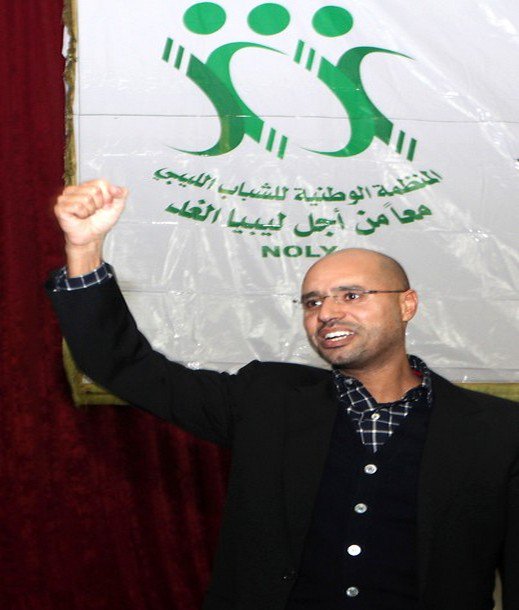Fate of unity government left in limbo
منتديات زنقتنا-منتديات شباب ليبيا الأحرار :: المنتديات السياسية :: الأخبار باللغة الانجليزية News in English
صفحة 1 من اصل 1
 Fate of unity government left in limbo
Fate of unity government left in limbo
Libya's UN-brokered Government of National Accord (GNA), and its accompanying Presidency Council, is in limbo as it seeks to take up office in the capital, Tripoli. Currently in Tunis, the GNA administration of Fayez al‑Serraj has been unable to secure a vote of confidence from the existing parliament—the House of Representatives (HoR, the legislature in eastern Libya). Because of this, it has tried to circumvent the HoR process by canvassing individual HoR members for support, and now claims to have secured the backing of a majority. In doing so, however, it risks violating the Libya Political Agreement (LPA), which laid the legal foundation of the new government.
The even larger challenge, however, for the GNA is how to physically begin occupying ministries in Tripoli. The (predominantly Islamist) authorities in the capital have hardened their stance towards the GNA, to the point of appointing a new security apparatus with the expressed aim of stopping any attempt by the GNA to establish a presence there.
The GNA's most vocal international backer, the UN special envoy, Martin Kobler, has expressed frustration with the pace of progress. He too has hardened his rhetoric and urged the GNA to take even bolder moves to hasten its entry into Tripoli and the beginning of its work proper. In doing so, Mr Kobler risks alienating further a Libyan public that is already sceptical of UN involvement in the country following a scandal that enveloped his predecessor, Bernardino León, who allegedly negotiated a lucrative academic job proposition with the UAE government—a firm backer of the HoR—while undertaking his duties as UN special envoy to Libya.
One step forward, two steps back
In many ways, the GNA is still stuck at the first hurdle of approval. The end product of a UN-backed political dialogue process that began as far back as 2014, the new government is the second cabinet presented to the HoR by Mr Serraj for a formal vote. The first was rejected in January, and the second, submitted in February, has been under consideration for over a month. The main sticking point is Article 8 of the LPA, which states that all government posts, including the head of the military, are answerable to and appointed by the Presidency Council. A substantial number of HoR members want General Khalifa Haftar—who leads a loose coalition of army units in an armed conflict in eastern Libya against Islamist militias—to occupy the role of military commander, a post he is unlikely to be given by Mr Serraj. As such, the HoR has endorsed the LPA in principle, on the condition that Article 8 is removed. However, it has not yet endorsed the latest cabinet proposed by Mr Serraj, mainly owing to insufficient quorum in parliament.
At the behest of Mr Kobler, the Presidency Council has moved to canvass individual HoR members, and in early March announced that 101 members had signed a list endorsing the new cabinet line-up, circumventing parliamentary procedure. Mr Kobler has insisted that this in itself constitutes approval—but HoR leadership and ironically some parliamentarians in the rival General National Congress (GNC, a parallel, Islamist-dominated legislature) in Tripoli disagree. Rushing such a crucial constitutional step may open the way for legal challenges to the new government further down the line.
Braced for a fight
Meanwhile in Tripoli, the authorities are more concerned with securing the capital in the face of a potentially hostile takeover by the UN-backed GNA. The rump GNC and its government, headed by Khalifa Ghwell, have hardened their opposition to the GNA. The militias that secure the capital have switched to a mode of high alert, and in mid‑March one major umbrella security group, the Libyan Revolutionaries Operations Room (LROR), vowed to "launch a protracted war" against Mr Serraj and any groups that support him if they attempt to enter Tripoli.
Soon after the LROR statement, a new umbrella organisation was announced under the name of the Gathering of Revolutionary Brigades. It comprises a patchwork of the militia units that secure the capital. Formed after a meeting at Mr Ghwell's office, the group's stated aim is the same as that of the LROR—to stop the GNA and its affiliated Presidency Council from taking up positions in the capital. Tellingly, the group warned that the international community should not align itself with any particular faction in Libya, and that any government emerging from such an alignment would be invalid, a reference to the GNA itself. This appears to be a criticism of the entire UN-brokered negotiation framework, which began in 2014.
Despite the nervousness exhibited in Tripoli, there is in fact little for opponents of the GNA to be concerned about. Mr Serraj does not yet have the backing of any major armed group in the country. His largely technocratic cabinet is made up of figures who have remained largely outside the political fray in recent years, and, as a result, cannot call upon alliances of militia units in the same way as the Muslim Brotherhood or the National Forces Alliance, the largest blocs inside the rival GNC and HoR respectively.
In pressuring the GNA to take up office in Tripoli so soon—without securing a formal HoR vote—Mr Kobler may have pushed the nascent government too far, too soon. Nevertheless, he remains characteristically optimistic; at a meeting of foreign ministers in Tunis on March 22nd, he insisted that the timeframe for the GNA taking office in the capital was "days not weeks". In reality, however, the process of installing the GNA is likely to take months of negotiations, and potentially more rounds of talks, even if Mr Kobler insists the LPA cannot be subject to further amendments. Without a military force of its own, the GNA's only option is to secure the co-operation of the existing authorities in Tripoli, while at the same time securing formal support from the HoR. As a result, further political instability and stalling is to be expected.
http://country.eiu.com/article.aspx?articleid=74062791&Country=Libya&topic=Politics
The even larger challenge, however, for the GNA is how to physically begin occupying ministries in Tripoli. The (predominantly Islamist) authorities in the capital have hardened their stance towards the GNA, to the point of appointing a new security apparatus with the expressed aim of stopping any attempt by the GNA to establish a presence there.
The GNA's most vocal international backer, the UN special envoy, Martin Kobler, has expressed frustration with the pace of progress. He too has hardened his rhetoric and urged the GNA to take even bolder moves to hasten its entry into Tripoli and the beginning of its work proper. In doing so, Mr Kobler risks alienating further a Libyan public that is already sceptical of UN involvement in the country following a scandal that enveloped his predecessor, Bernardino León, who allegedly negotiated a lucrative academic job proposition with the UAE government—a firm backer of the HoR—while undertaking his duties as UN special envoy to Libya.
One step forward, two steps back
In many ways, the GNA is still stuck at the first hurdle of approval. The end product of a UN-backed political dialogue process that began as far back as 2014, the new government is the second cabinet presented to the HoR by Mr Serraj for a formal vote. The first was rejected in January, and the second, submitted in February, has been under consideration for over a month. The main sticking point is Article 8 of the LPA, which states that all government posts, including the head of the military, are answerable to and appointed by the Presidency Council. A substantial number of HoR members want General Khalifa Haftar—who leads a loose coalition of army units in an armed conflict in eastern Libya against Islamist militias—to occupy the role of military commander, a post he is unlikely to be given by Mr Serraj. As such, the HoR has endorsed the LPA in principle, on the condition that Article 8 is removed. However, it has not yet endorsed the latest cabinet proposed by Mr Serraj, mainly owing to insufficient quorum in parliament.
At the behest of Mr Kobler, the Presidency Council has moved to canvass individual HoR members, and in early March announced that 101 members had signed a list endorsing the new cabinet line-up, circumventing parliamentary procedure. Mr Kobler has insisted that this in itself constitutes approval—but HoR leadership and ironically some parliamentarians in the rival General National Congress (GNC, a parallel, Islamist-dominated legislature) in Tripoli disagree. Rushing such a crucial constitutional step may open the way for legal challenges to the new government further down the line.
Braced for a fight
Meanwhile in Tripoli, the authorities are more concerned with securing the capital in the face of a potentially hostile takeover by the UN-backed GNA. The rump GNC and its government, headed by Khalifa Ghwell, have hardened their opposition to the GNA. The militias that secure the capital have switched to a mode of high alert, and in mid‑March one major umbrella security group, the Libyan Revolutionaries Operations Room (LROR), vowed to "launch a protracted war" against Mr Serraj and any groups that support him if they attempt to enter Tripoli.
Soon after the LROR statement, a new umbrella organisation was announced under the name of the Gathering of Revolutionary Brigades. It comprises a patchwork of the militia units that secure the capital. Formed after a meeting at Mr Ghwell's office, the group's stated aim is the same as that of the LROR—to stop the GNA and its affiliated Presidency Council from taking up positions in the capital. Tellingly, the group warned that the international community should not align itself with any particular faction in Libya, and that any government emerging from such an alignment would be invalid, a reference to the GNA itself. This appears to be a criticism of the entire UN-brokered negotiation framework, which began in 2014.
Despite the nervousness exhibited in Tripoli, there is in fact little for opponents of the GNA to be concerned about. Mr Serraj does not yet have the backing of any major armed group in the country. His largely technocratic cabinet is made up of figures who have remained largely outside the political fray in recent years, and, as a result, cannot call upon alliances of militia units in the same way as the Muslim Brotherhood or the National Forces Alliance, the largest blocs inside the rival GNC and HoR respectively.
In pressuring the GNA to take up office in Tripoli so soon—without securing a formal HoR vote—Mr Kobler may have pushed the nascent government too far, too soon. Nevertheless, he remains characteristically optimistic; at a meeting of foreign ministers in Tunis on March 22nd, he insisted that the timeframe for the GNA taking office in the capital was "days not weeks". In reality, however, the process of installing the GNA is likely to take months of negotiations, and potentially more rounds of talks, even if Mr Kobler insists the LPA cannot be subject to further amendments. Without a military force of its own, the GNA's only option is to secure the co-operation of the existing authorities in Tripoli, while at the same time securing formal support from the HoR. As a result, further political instability and stalling is to be expected.
http://country.eiu.com/article.aspx?articleid=74062791&Country=Libya&topic=Politics
ـــــــ-ــــــ-ـــــ-ـــــ-ــــــ-ـــــــ-ـــــ-ــــ-ــــــ-ــــــ-ـــــــ-ـــــــ-ـــــــ-
التوقيع


ليبيا خضراء غصباً عن الكل

brokenpen82-

- الجنس :

عدد المساهمات : 5045
نقاط : 17012
تاريخ التسجيل : 08/04/2011
. :
. :
 مواضيع مماثلة
مواضيع مماثلة» Key Countries Back Unity Government in Stabilizing Libya
» France Wants to Reopen Embassy in Libya to Help Unity Government
» Libya’s Unity Government Defies Air Blockade to Reach Tripoli
» The Illegitimate Libyan Government Is Funding the Terrorists Who Killed Chris Stevens Read more at: http://www.nationalreview.com/article/421373/will-US-recognize-libyan-government-that-funds-terrorists?80Y5TjUdQ1YG1lYA.01
» Unity, up to a point
» France Wants to Reopen Embassy in Libya to Help Unity Government
» Libya’s Unity Government Defies Air Blockade to Reach Tripoli
» The Illegitimate Libyan Government Is Funding the Terrorists Who Killed Chris Stevens Read more at: http://www.nationalreview.com/article/421373/will-US-recognize-libyan-government-that-funds-terrorists?80Y5TjUdQ1YG1lYA.01
» Unity, up to a point
منتديات زنقتنا-منتديات شباب ليبيا الأحرار :: المنتديات السياسية :: الأخبار باللغة الانجليزية News in English
صفحة 1 من اصل 1
صلاحيات هذا المنتدى:
لاتستطيع الرد على المواضيع في هذا المنتدى






» تحية لفرسان لبنان
» أشجان عربية
» فلنحم وجودنا
» وداع الأبطال
» بين الدين والاخلاق
» حول مفهوم الحضارة
» فيم تكمن قيمة الانسان ؟؟؟
» حزب المجد
» نداء الإقدام
» نداء الى امّتنا
» حقيقة الثقافة
» وجعٌ على وجع
» تعاظمت الجراح
» بجلوا الابطال
» موقف عز وشرف
» نداء الوفاق
» رثاء الشهيد اسماعيل هنية
» هدهد الجنوب
» حماة العفن